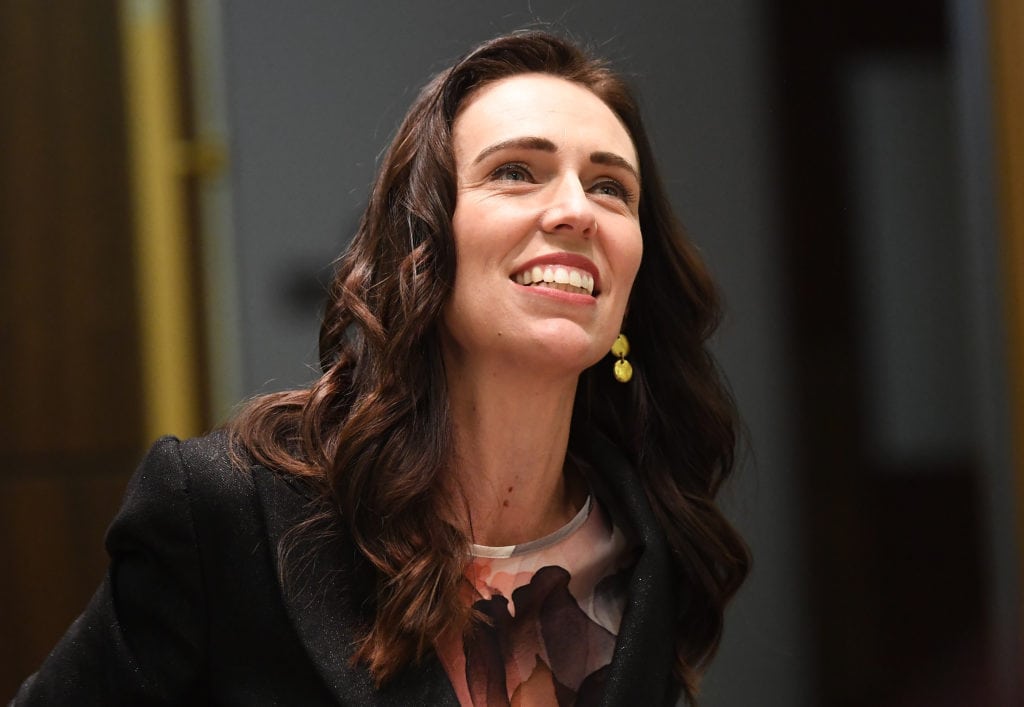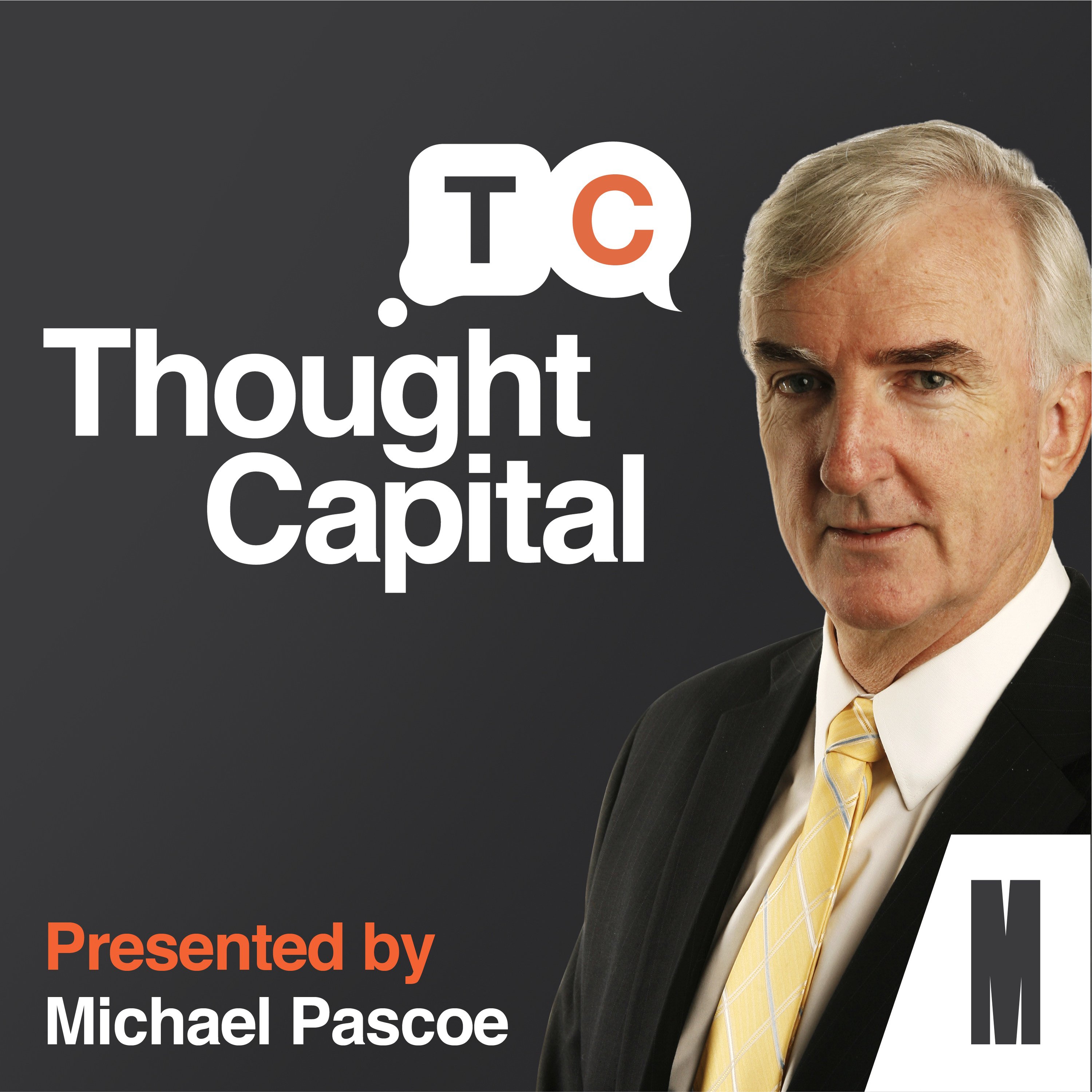Michael Pascoe: Welcome to Thought Capital, the podcast that delves into the wealth of ideas created by the experts at Monash Business School in Melbourne, Australia.
Nathan Eva: Charisma matters, how we look still matters because how we think about leadership, it’s still white male-driven. And that’s something that we need to address and we need to change.
Michael Pascoe: The general idea of a successful leader remains well, very traditional. We continue to look for someone charismatic, most often a white male. It’s still top-down leadership, often ego-driven. But will the next generation hitting the labour market, Generation Z, wear that? To talk about leadership and the next generation, is Dr Nathan Eva from the Department of Management. Welcome Doctor.
Nathan Eva: Thank you so much Michael. Pleasure to be here.
Michael Pascoe: From the churches to the banking Royal Commission, conventional leadership’s taken a beating. Some heads have even rolled and it calls for cultural change. But traditional authoritarian leadership remains the rule. CEOs of the major companies perhaps even becoming celebrities. Why?
Nathan Eva: We’re drawn to charismatic leaders. We love it and there’s plenty of research to demonstrate that, if you talk about things in threes, if you change the pitch of your voice, in how you look and how you signal out to people, has an influence on how we think about leaders. Charisma matters, how we look still matters, because how we think about leadership is as you said off the top, is still white male driven. And that’s something that we need to address and we need to change.
Michael Pascoe: How?
Nathan Eva: I don’t know if there’s necessarily an answer to that, but we are moving forward and we are having positive growth. We’re seeing gender diversity, race diversity, nationality diversity, sexuality diversity within the C-suite within senior managers, which is fantastic. It’s demonstrating to people out there that there is an opportunity for them to go and lead.
Nathan Eva: We’re also getting much better at training leaders. And how we’re developing leaders within MBA programs, within organisational programs and undergraduate and high school programs as well. We’re talking about ethics a lot more, transparency and we’re talking a lot more about values and what we value as leadership.
Nathan Eva: There’re a host of things that we’re all trying to do to make sure that the leaders of the next generation are better equipped, than what they were 10, 20, 30 years ago.
Michael Pascoe: Does the top-down leadership style persist, because it’s easiest?
Nathan Eva: 100%. It’s still very effective and it’s the easiest thing to teach in a MBA classroom. It’s this whole idea of teaching it’s ‘us’ versus ‘them’. And I have not seen a better example than President Trump. You are either on his team of winners who are making America great again, or the losers side with the fake news media, the radical Democrats who are trying to tear America down.
Nathan Eva: It creates a very, very clear divide that you’re either with us or against us. And whoever is against us, is your enemy and it’s your job to take that enemy down.
Michael Pascoe: Top-down leadership is also known as authoritarian leadership.
Frances Feenstra: Authoritarian leadership is popular, because it makes us feel like there’s someone in charge.
Michael Pascoe: Frances Feenstra is an organisational psychologist and the Director of management and leadership consultancy, People Measures.
Frances Feenstra: So Donald Trump for instance will say, “Leave it with me, I will build a wall. I will fix our problems.” Rather than say to the nation, “Well, we might have to have a conversation about, how do we share wealth on this continent? How do we deal with people who have nothing and who sit next door to us, who seem to have so much? And how do you have a conversation about gun control in the states?” That is a pretty difficult thing to do and in order to do that, you need to stick your own neck out and say to people, “I don’t have all the answers, but let’s talk.”
Frances Feenstra: We’re not comfortable with that. So somebody who says, “Let’s not talk, I’ll make the decisions and life will be better.” Well, that makes us feel better. Even though in the long run, it’s not probably going to work.
Nathan Eva: When you look at the corporate scandals and crises that are going on, this is the most common leadership approach that we see going on through here. We’ve seen it with Enron, we saw it with the global financial crisis and we’ve seen it with the banking sector crisis as well. When you create an ‘us’ versus ‘them’, this competition mentality takes over. The ‘them’ become not real humans. They don’t warrant your love, care, compassion, anything like that. So whatever goes.
Michael Pascoe: And us versus them even within the organisation though, once you have that competitive set up within your organisation, doesn’t that of itself prevent servant leadership? Because it only works if you can trust people.
Nathan Eva: If you look back to Enron there was a great documentary, “The smartest guys in the room”, they talk about, if I could get a bonus by stepping on the throat of someone next to me, I’m going to do it. I’m going to jump on his throat. And you see it with the Wolf of Wall Street as well.
Nathan Eva: The exact same idea that, if we create a culture of competition within our organisation, of course things like servant leadership or ethics can’t thrive. Because we are thriving on competition and we’re thriving on trying to take down the person next to me, so I can get that corner office.
Michael Pascoe: While there may be more diversity in this C-suite, the CEO may be a minority female, but could still be a top-down manager. Is the actual nature of management necessarily changing?
Nathan Eva: There are a lot of pressures for non-white males to lead in those particular ways, but I am encouraged by, we had Gail Kelly, the former CEO of Westpac. And the amazing work that she was doing through there. There is some really nice examples of how leadership is changing. And it’s not just necessarily by putting a woman at the top or putting in minority at the top. That this needs to be a more holistic society change to leadership. And also what we accept as good leadership.
Michael Pascoe: Leadership top-down, it’s worked for a few thousand years hasn’t it? There are good and bad things about top-down leadership.
Nathan Eva: The issue is that, it’s giving us some short-term gains, but there is an issue with this long-term nature. We are seeing these cons coming through. Employees are being sacrificed at the altar of profit. When things are going wrong, employees are the first ones to show the door. And the other thing is that, it’s all about the leader. That it’s all very leader centric.
Nathan Eva: The employees are ignored in these models of leadership and often employees are seen as interchangeable, rather than being an integral part of the organisational system. We celebrate leaders because they look good on magazines, because we love thinking about it as, “Steve Jobs has changed the world, Bill Gates has changed the world”.
Nathan Eva: Well actually there is a suite of people behind them helping them do this and deliver on this. And they’re often forgotten in these top-down models of leadership.
Michael Pascoe: Frances Feenstra, what does a great leader look like?
Frances Feenstra: I believe a great leader is someone who sees their role. Not just as hitting up the organisation that they’re a part of, but also sees their role in the context of the bigger environment. So whatever that is, the sector that they’re in, the states, the country, maybe even the world. So leadership goes beyond making a profit. So how do you fit into that landscape?
Frances Feenstra: And I think a good example of that for instance, in the recent past would be Alan Joyce, the CEO of Qantas, who was very visibly involved in the same sex marriage debate. And so didn’t think whether that was good or bad for Qantas’s profit, what the backlash of that might have been.
Michael Pascoe: That’s Frances Feenstra again. So good leadership goes beyond making a profit. Nathan Eva, what’s the alternative to top-down leadership?
Nathan Eva: Four things off the top. Authentic leadership, where this idea that leaders act authentically, that they know who they are and they act through those values. Ethical leadership, where leaders act ethically, they have these moral conversations with their employees. They know what’s right and wrong and they reward and punish based on these standards. Servant leadership, we are fostering the personal and professional development of your employees. You’re putting their needs first rather than customers and profits.
Nathan Eva: By doing this, your employees reciprocate in kind. The last thing we’re starting to see with organisations now, is this idea of collective shared or distributed leadership. So anyone who’s listening who might be a school principal or working in the school system will say, “Well, we’ve known about distributed leadership for years.” But with organisations, it’s only something that’s really started to emerge and really started be successfully in recent term, specifically with more cross border teams.
Michael Pascoe: Servant leadership, got an example?
Nathan Eva: Well, there’s actually quite a lot of examples out there. If you look at the fortune 100 best companies to work for, over 50 of them practice servant leadership in one way or another. So you might see this with say, Wegmans Supermarket or SAS Institutes. If I look at companies locally here such as Eccentric Consulting, international company that operate locally, they embed this stewardship service element within their core values.
Nathan Eva: And their approach to doing business and how they train leaders, is based around this idea of, how we’re serving our employees so they can go and best serve our clients. We’re starting to see some more local organisations here in Melbourne, such as a lot about service industries who are taking up servant leadership training and trying to embed this within their organisation.
Nathan Eva: One of the great things that I love about servant leadership, is that you don’t see them on the front cover of Time. You don’t see them on the front cover of Herald Sun, because they are there in the trenches working with their employees. Helping build up their organisation and their company rather than putting out their own press releases.
Michael Pascoe: If we’re to change the nature of leadership, the style of leadership, to change what’s being taught in business schools. Doesn’t servant leadership have to demonstrate and be measured to provide better productivity, better remuneration promotions, et cetera? Is it happening?
Nathan Eva: There’s a lot of evidence to suggest that servant leadership performs 27% better than traditional charismatic or transformational leadership. So we know it’s having an influence on firm performance. The one thing I do want to say here, is that it’s a longterm prospect. That you’re investing in your employees and the employees are going to grow, they’re going to develop, you’re going to create a culture which is then going to be good for your customers.
Michael Pascoe: Ten years ago during the global financial crisis, a lot of criticism about top-down performance and bonus driven leadership, whole pile of people lost their jobs including some of those leaders. Yet here we are again after the banking Royal Commission. Certainly (there) has been a lot of criticism. Customers’ trust in the organisation has being damaged. We didn’t learn from the last lot. Are we going to learn from this lot?
Nathan Eva: We still want to trust our leaders. And you can see that with the political leaders at the moment. And now we want to have a political leader who we can trust. The trust is often broken, because we feel that leaders put themselves before the customers, or their constituents and we feel betrayed. We’re learning that authenticity matters.
Nathan Eva: We want transparency in our leaders. And we’re now getting to the point where we actually want to see how the sausage is made. We can’t ignore the ethical component of leadership. It’s generally the first element, when something goes wrong, we wave our finger and say, “Hey listen, well they’ve been acting unethical.”
Nathan Eva: I want to say it’s not always just the leader’s fault. That there’re contexts that allow leaders to act unethical. There are laws that allow leaders to act unethical. There are people around leaders, colluders, conformers, the people who are working with them, that allow them to act unethically.
Michael Pascoe: Jacinda Ardern, who has certainly received international coverage through the most tragic of circumstances, and has become a symbol of a different leadership. How transferable is that? Is that a matter of a symbol that could change people’s opinions or is there a concrete way to learn?
Nathan Eva: There’s a lot we can learn from Prime Minister Ardern. She’s been able to unite a country through an incredible, incredible tragedy. It goes to the importance of leaders being there and leaders showing up. And so when we’re talking about servant leaders putting their employees first, putting their followers first, she’s done this incredibly well.
Nathan Eva: She’s been there with the people, she’s cried with the people, she’s mourned with the people. And that’s incredibly important. She’s been able to unite a country because they believe in her, because they need her there and she is a symbol of hope. And she’s been a symbol of hope now worldwide. And it’s having incredible influence on New Zealand’s reputation, and where New Zealand is going after this tragedy.
Speaker: In Florida, to buy a gun you do not need a permit, you do not need a gun license. And once you buy it, you do not need to register it. You do not need a permit to carry a concealed rifle or shotgun. You can buy as many guns as you want at one time. I read something very powerful to me today. It was from the point of view of a teacher. And I quote, “When adults tell me I have the right to own a gun, all I can hear is, my right to own a gun, outweighs your student’s rights to live. All I can hear is, mine, mine, mine, mine.”
Frances Feenstra: From what I can see from those young people, and I must say they give me great hope. Well that is based more ethical, less selfish, less focused on what’s good for us. Maybe more long-term thinking. We’ve talked for centuries about the need for senior people to be strategic and think long term. But if you look at the state that we’ve got ourselves in, I’m not sure that anybody’s done a massive amount of long-term thinking.
Michael Pascoe: Generation Z is fast coming into the workforce. People born the decade from the mid 90s. Dr Eva, are they different? Do they bring different expectations of leadership?
Nathan Eva: Yes, they do. And it’s characterized because they are the most socially conscious generation we have ever known. They’re seeing the world’s problems as theirs to solve. And you just need to look at how they’ve protested for climate change, marriage equality and gun reform in the US. They’re seeking to lead this conversation, rather than just be part of it. They’re incredibly engaged and knowledgeable on issues of the day, because they know how to find information at their fingertips.
Nathan Eva: They have the understanding that we never had growing up, about what is going on in Syria, what is going on in Venezuela, that they’re able to rally to these particular causes. Also, the education system they’re growing up in, is much better than what it has been in the past. So they’re getting a lot more access to diverse opinions and new information that we’ve ever had. It means that they’re a very complex generation to lead.
Michael Pascoe: Is it dangerous to generalize about the generation though?
Nathan Eva: Yes, it is tough to generalize an entire population. And the part of Generation Z that we’re understanding, are the active part of this generation, who want to be out there and being activists and entrepreneurs. The big difference there between Gen Y and Gen Z, is what’s in it for me? What am I getting out of it? This whole ‘Gen me’. With Gen Z, that’s a shift. And the shift is towards what is in it for other people? What impact am I having on the global stage? What impact is the job that I’m doing, have on the broader system?
Nathan Eva: Gen Z grew up around the global financial crisis. They grew up around things going wrong. The world we were seeing was falling apart, the sky’s falling in. With Gen Y, we’re growing up with the invention of internet, invention of that you can be anything, you can go anywhere that you want to be, that anyone can be president. So it’s a very different messaging that we’ve been delivering these two generations.
Michael Pascoe: So what does business have to do with this Gen Z as it comes through? Will they be different again to manage?
Nathan Eva: There’re some things that I’m going to say that go, “Yes, we’ve been doing that for years.” And there’re some other things that might be a little bit new. So the base things need to stay the same. As a leader, being able to communicate, empowering your employees and empowering them in a much younger and much more inexperienced age. And help your employees get the most out of their career. Help them understand how they can be promoted, learn new skills, develop as people.
Frances Feenstra: More and more leadership is mobilizing people to make progress on tough challenges. Well, how do you mobilize people? Listening would be one way. The ability to hold multiple perspectives and to understand not everybody sees the world the way you do. And to be open and curious about that, I think compassion is really important.
Frances Feenstra: So compassion, listening, holding multiple perspectives, being resilient and holding steady. When you’re asking people to do things that are uncomfortable, are all really important characteristics.
Michael Pascoe: Dr. Nathan Eva, Gen Z plugged in from birth, what has that done to their relationship with technology? Has it changed their minds?
Nathan Eva: We do know that attention spans are becoming shorter, but we do know the ability to switch tasks and switch focuses are much better for Gen Z, than what they have been in previous generations. So this idea of having to innovate and being able to switch minds from how am I innovating, to business as usual is going to be a lot easier for Gen Z than what it has been for a Gen Y or a Gen X.
Nathan Eva: And it’s funny that we keep categorising Generation Z as, well they’re plugged in therefore, we have to give them things online. That everything with Gen Z seems to be around, how can we cater for them online? They also do crave this face to face conversation. And that want to work with managers and work with people. Yes, they’re digital natives, yes, they’re better at working online, but that doesn’t mean that there aren’t the person to person elements. Human contact meetings are very important for Generation Z.
Michael Pascoe: These digital natives are going into a pretty tough technological jungle. There’re being threatened with AI to take their jobs before they even get them, with robots, how will they handle it?
Nathan Eva: We do know that leaders are safe. That we’re still going to need people who are good at managing people. And those skills are very important. And we need to remind young aspiring leaders, that they continue to work on their skills. A surgeon doesn’t wake up one morning and say, “I’m good at surgery.” An accountant doesn’t wake up and goes, “I’m good in accounting.” They make mistakes, they learn, they develop.
Nathan Eva: And that’s very, very important for future leaders out there, within Generation Z and within other generations as well. That we do need to continuously get better. A big part and going back to the top, is that ability to say, “I was wrong. I don’t know everything.” With the increase of AI, with the increase of robots, we cannot be expected to be across everything. Leaders need to be good at managing people. They don’t need to be good at managing robots. We have robots for that.
Michael Pascoe: Thank you Nathan Eva for talking to us. And thank you Frances Feenstra from People Measures for sharing your thoughts on leadership.
Michael Pascoe: You’ve been listening to Thought Capital, from Monash Business School. You can find more episodes on iTunes, Spotify, and Stitcher or wherever you listen to podcasts. This episode was produced by Tina Zenou, editor is Nadia Hume. Sound production by Gareth Popplestone. Executive producer is Helen Westerman. Thought Capital is recorded at the Monash School of Media, Film and Journalism.




